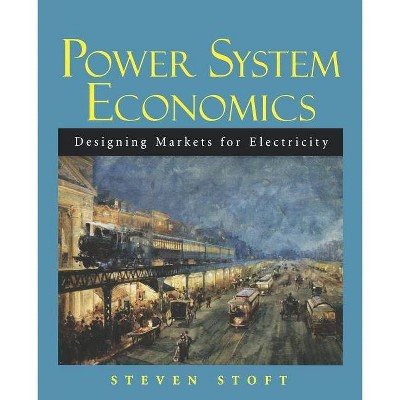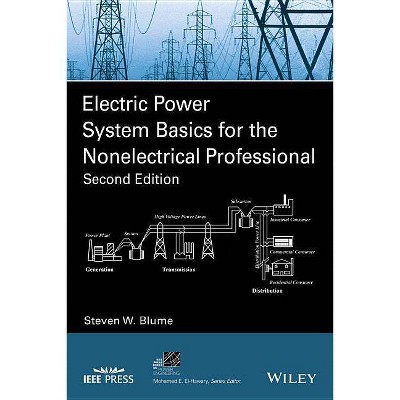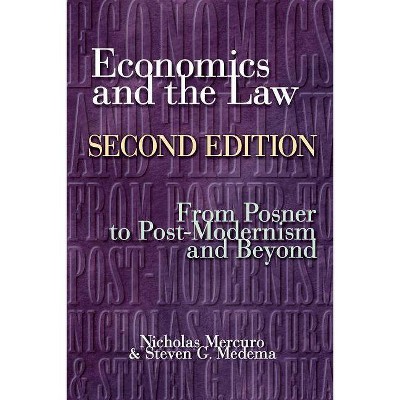Power System Economics - by Steven Stoft & Stoft (Paperback)

Similar Products
Products of same category from the store
AllProduct info
<p/><br></br><p><b> Book Synopsis </b></p></br></br>The first systematic presentation of electricity market design-from the basics to the cutting edge. Unique in its breadth and depth. Using examples and focusing on fundamentals, it clarifies long misunderstood issues-such as why today's markets are inherently unstable. The book reveals for the first time how uncoordinated regulatory and engineering policies cause boom-bust investment swings and provides guidance and tools for fixing broken markets. It also takes a provocative look at the operation of pools and power exchanges.<br /> * Part 1 introduces key economic, engineering and market design concepts.<br /> * Part 2 links short-run reliability policies with long-run investment problems.<br /> * Part 3 examines classic designs for day-ahead and real-time markets.<br /> * Part 4 covers market power, and<br /> * Part 5 covers locational pricing, transmission right and pricing losses.<br /> The non-technical introductions to all chapters allow easy access to the most difficult topics. Steering an independent course between ideological extremes, it provides background material for engineers, economists, regulators and lawyers alike. With nearly 250 figures, tables, side bars, and concisely-stated results and fallacies, the 44 chapters cover such essential topics as auctions, fixed-cost recovery from marginal cost, pricing fallacies, real and reactive power flows, Cournot competition, installed capacity markets, HHIs, the Lerner index and price caps.<br /> <br /> About the Author<br /> Steven Stoft has a Ph.D. in economics (U.C. Berkeley) as well as a background in physics, math, engineering, and astronomy. He spent a year inside FERC and now consults for PJM, California and private generators. Learn more at www.stoft.com.<p/><br></br><p><b> From the Back Cover </b></p></br></br>An Introduction to the Fundamental Economics of Power Market Design and Analysis<br /> <br /> Power System Economics is the first systematic presentation of power-market design principles from economic theory to market architecture. The approach is pragmatic, and the discussion illustrates economic and engineering fundamentals with simple examples. The volume breaks new ground in its analysis of price spikes, market-based unit commitment, and the prediction of market power.<br /> <br /> Power System Economics includes five parts. Part 1 introduces key economic, engineering, and market design concepts. Part 2 explains how short-run reliability policies determine long-run average installed capacity and reliability. Part 3 examines classic designs for day-ahead and real-time markets. Part 4 covers market power, and Part 5 covers the effect of networks on prices. Topics include: <br /> * How marginal-cost prices cover fixed costs<br /> * Fundamentals of auction design<br /> * The value of lost load (VOLL) as a price cap: theory versus practice<br /> * Price limits, price spikes, investment, and reliability<br /> * Standard market designs, including PJM<br /> * Power pools versus power exchanges<br /> * Market power fallacies and the HHI<br /> * Losses pricing and congestion pricing<p/><br></br><p><b> Review Quotes </b></p></br></br><br>This book is for anyone seeking to understand how cost/price relationships involved in electrical energy production and distribution may ideally be determined. (<i>Electrical Apparatus</i>, August 2002) <p>...the quality of its content deserves a wide readership...(<i>Power System Economics The Journal of Energy Literature</i>, Vol.V111, No.2, 2002)</p><br><p/><br></br><p><b> About the Author </b></p></br></br>STEVEN STOFT has a BS in engineering mathematics and a PhD in economics from the University of California at Berkeley, and over ten years of experience in power market analysis and design. He has held positions at FERC, the University of California's Energy Institute, and the Lawrence Berkeley National Laboratory. He is currently a consultant to the Pennsylvania-New Jersey-Maryland ISO (PJM), California's Electricity Oversight Board, the U.S. Department of Energy, and an independent power producer.
Price History
Price Archive shows prices from various stores, lets you see history and find the cheapest. There is no actual sale on the website. For all support, inquiry and suggestion messagescommunication@pricearchive.us




















